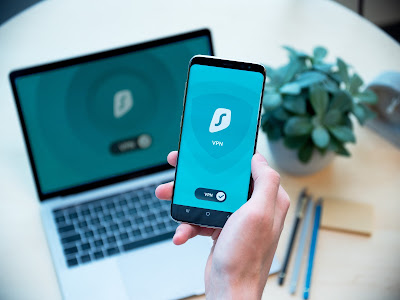By Katie Pierce
Image by rawpixel.com on Freepik
Cybersecurity should be a top priority for every business. It ensures that your company’s data is protected from cyber threats. Implementing cybersecurity protocols also helps guarantee that your customer’s payment details, personal information, and other sensitive data are safe.
Fashion business owners likely handle different customer information while running their business. Whether you run a clothing store, jewelry business, or shoe shop, it’s important to have a strong security system that protects your clients’ sensitive data.
Here are some tips on how fashion business owners can protect their companies:
1. Stay Up-to-Date with the Latest Security Patches
Hackers love to exploit known vulnerabilities. They will look for various ways to breach your system. If you have an old version of software installed, hackers can easily get inside your network.
To avoid these problems, ensure your computers and devices have the latest security patches. This will ensure that there are no vulnerabilities in your network or system. When developers create the latest version of apps or software, they usually release updates to fix any bugs. These updates help prevent hackers from using these flaws to access your system.
2. Make Sure That All Employees Are Using Strong Passwords
Employees need to use strong passwords when logging into various accounts. If they do not, they could expose your company’s confidential data. A good password policy should include at least eight characters, numbers, and special symbols. You and your employees should never use common passwords such as “password,” “123456”, and “qwerty” because hackers easily guess them.
In addition, you should ensure that employees are changing their passwords regularly. At least once every three months, they should change their passwords. You can even set up an automated process where your employees have to re-enter their current password before being able to log in.
Image by fabrikasimf on Freepik
3. Use Two-Factor Authentication
In addition to using strong passwords, you and your team should also use two-factor authentication. Two-factor authentication is simply a method of verifying login credentials through something else other than just a username and password.
A code is sent to your device via text message or email. Once this confirmation code is entered correctly, the user will be granted full access to his/her account. Most websites offer this feature nowadays.
Two-factor authentication helps guarantee that only authorized users can access their systems. Hackers who try to break into a website or system often use stolen usernames and passwords. If you implement two-factor authentication, there’s an added layer of protection.
4. Carry Out Risk Assessment
If you’re a business owner, it’s important to carry out a risk assessment. A risk assessment helps you find out what type of attacks hackers might attempt on your site. It also determines how vulnerable you are to hackers.
Once you’ve identified the risks you face, you’ll know which steps you must take to mitigate them. Establish what measures you can put in place to minimize the level of attack. For example, if you find potential weaknesses in your servers, you may want to hire a professional IT consultant to assist you with fixing those issues.
Image by rawpixel.com on Freepik
5. Educate Your Team About Cybersecurity Risks
You should educate your staff about cybersecurity risks. This way, they will understand the importance of protecting their data and other assets from cyberattacks. It’s imperative to teach them about the different types of threats hackers pose to your organization.
Also, it’s vital to let them know what kind of precautions they must take to protect themselves from cybercriminals. If they suspect a breach has occurred, they should know which steps to take to prevent further damage.
6. Use an Encrypted Network
Encryption is one of the most effective ways to safeguard sensitive information. It scrambles information before it travels over networks. Thus, hackers cannot access any confidential information. One way to ensure encryption is by using a virtual private network (VPN).
A VPN offers you complete privacy and security while accessing the internet. You can surf the web privately without worrying about your online activities being monitored. It’s also recommended to use a VPN when using public Wi-Fi so that hackers won’t be able to intercept your data.
Photo: Unsplash
7. Backup Your Data
While cloud storage is becoming more popular nowadays, it’s still not foolproof. Hackers are always trying to get hold of valuable information and can hack into your cloud storage. To avoid losing all of your files, make sure you backup your data frequently.
Whether through an external hard drive or online backup service, it’s best to have a reliable backup plan. Backing up your data regularly ensures that you don’t lose anything. So in case something happens to your network, you’ll still have copies of valuable information related to your business stored elsewhere.
The Bottom Line
As more businesses rely on the internet for work, cyberattacks are becoming increasingly common. They can lead to significant financial losses and even harm reputations. Therefore, businesses must take proactive measures to protect themselves against these dangers. Implementing the tips above will help you do just that.





Lovely Post! Love your wonderful post. Thanks and keep sharing.
ReplyDelete